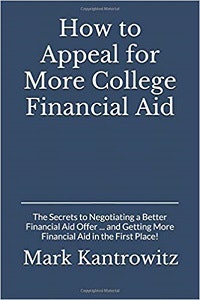As a journalist who has covered college admission for many years, I’ve seen firsthand how students and families struggle to make sense of the financial aid award letters they get from colleges.
At a charter school in New Orleans, for example, I saw a student who didn’t initially understand that even though she was being offered $32,000 in scholarship aid from her dream school – a private liberal arts college – she still would have been in major debt upon graduation since that amount only covered one year of tuition.
In another case, I saw an immigrant father ask why his son couldn’t enroll in his first-choice college – even though the family didn’t have enough to cover all four years – and then just try to hustle up the rest of the money they needed to cover sophomore year. And he would have taken that route had a financial aid adviser not discouraged him by warning him that sophomore year comes quicker than you think – and how it would be better to settle on a second-choice school that was offering a better financial aid package.
I can’t help but wonder if these situations – and the many others just like them that play out every year – might have turned out differently if these students and their parents had known something about the art of appeal.
At least that’s what I’ve been thinking since I read a new book from financial aid guru Mark Kantrowitz, titled How to Appeal for More College Financial Aid: The Secrets to Negotiating a Better Financial Aid Offer … and Getting More Financial Aid in the First Place!
“The more you know, the better position you are in to negotiate,” Kantrowitz writes. “So, do your research in advance.”
Indeed, the book is chock-full with both simple and sophisticated insights for anyone interested in learning more about how to squeeze as much money out of a college as possible within the framework of the law. That would include students, parents and financial aid advisers.




















